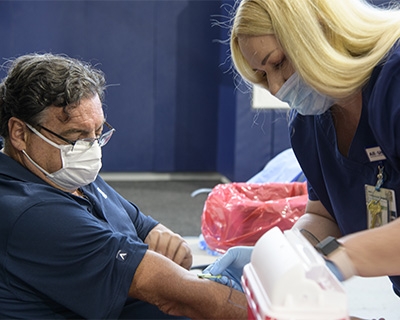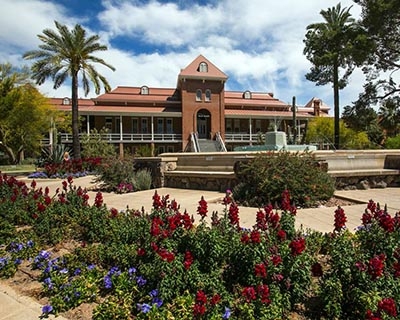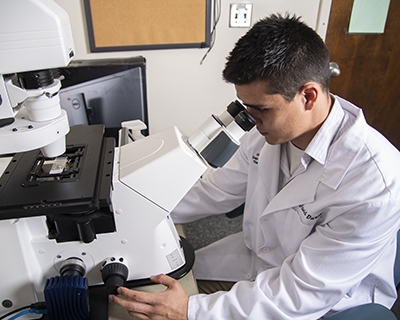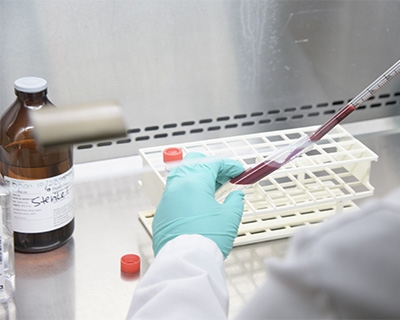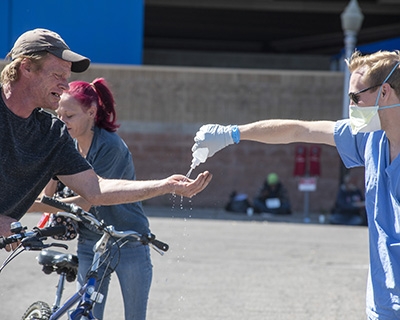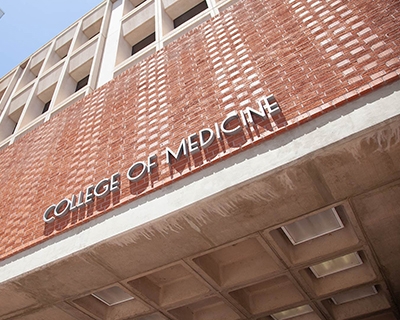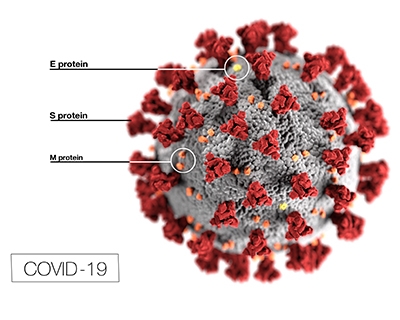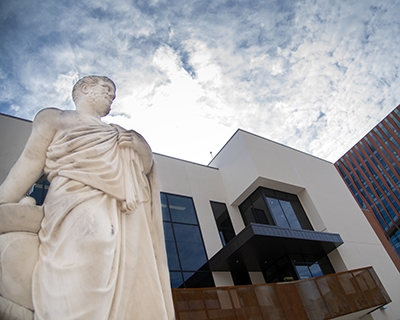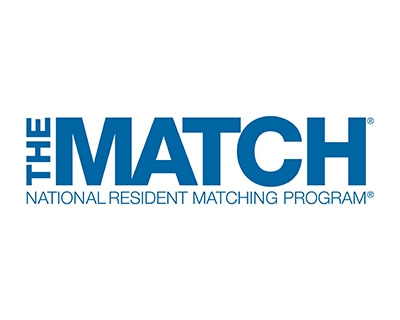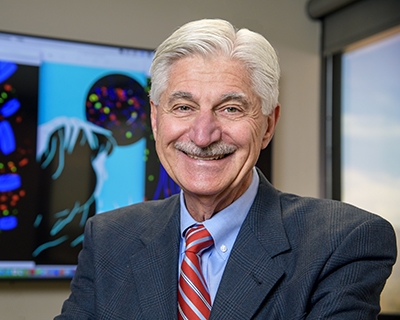News
A National Institutes of Health grant will support the development of a novel therapy that can enhance memory function and improve brain connectivity.
The University of Arizona – State of Arizona antibody testing initiative will include 31 sites across the state as it expands to all 15 counties.
Though the novel coronavirus pandemic was a shared challenge for the Class of 2020, University of Arizona students featured here also overcame other struggles and excelled in their studies.
The five Health Sciences colleges at the University of Arizona plan special ways to mark the rite-of-passage of earning a degree, despite COVID-19 social distancing and stay-at-home orders.
Researchers from the UArizona College of Medicine – Tucson found that inhibiting heat shock protein 90 in the spinal cord enhanced effectiveness of opioid therapy and could decrease its side effects.
On May 14, a total of 117 medical students from the University of Arizona in Tucson officially will become physicians and earn their Doctor of Medicine degrees.
This University of Arizona-led breakthrough has the potential to benefit hundreds of thousands of patients whose current healing options are either partially effective or painful and invasive.
The state investment will allow UArizona to test 250,000 of Arizona’s front-line workforce.
Concerned about how the pandemic will impact the homeless population, University of Arizona Health Sciences students are screening Tucson’s homeless for symptoms of COVID-19.
More than 70 University of Arizona medical students are helping health care professionals during the COVID-19 crisis by volunteering to provide child care, pet care, grocery shopping and more.
Infection control expert Kelly Reynolds discusses, among other things, hospital infection control and ventilation measures and how they are being adjusted during the COVID-19 pandemic.
In coordination with the University of Arizona and College of Medicine – Phoenix, the College of Medicine — Tucson is offering early graduation to the Class of 2020. This option is for qualified students who wish to serve as new physicians to meet the unprecedented health needs that have emerged from the COVID-19 pandemic.
The University of Arizona Cancer Center will receive $1.4 million as a collaborating center with the national network of academic, public health and community partners, working together to reduce the burden of cancer, especially among Hispanic cancer survivors.
Students from the University of Arizona College of Pharmacy and Mel and Enid Zuckerman College of Public Health provide "surge capacity" for overwhelmed county health departments that, in addition to their regular work, are inundated with calls from the public about the novel coronavirus COVID-19.
One-third of the UA College of Medicine – Tucson Class of 2020 will remain in Arizona to practice medicine and pursue their residency training. Nearly 50 percent of the class will pursue primary care — a physician specialty that is critically low in Arizona and the nation.
The award-winning program of the University of Arizona College of Medicine – Tucson at the UArizona Health Sciences will conduct a major online training program regarding the COVID-19 pandemic for health-care providers and administrators, “Developing Telemedicine Services,” Monday, March 23.
The Match Day Ceremony hosted by the University of Arizona College of Medicine – Tucson has been canceled out of caution for student and employee welfare due to the COVID-19 pandemic. Instead, graduating medical students will celebrate in small groups and pick up envelopes that detail where they will begin their careers as physicians.
Dr. Hani Babiker, assistant director of early-phase therapeutics and director of phase I clinical trials, is overseeing the University of Arizona Cancer Center’s early-phase clinical trials, seeking to identify novel drugs and treatments for better cancer care.
On Friday, March 20, medical students at the University of Arizona College of Medicine – Tucson will tear open envelopes simultaneously revealing where they will go for their residency training. Surrounded by friends and family, the emotion-filled ceremony is considered the most exciting day of medical school.
The University of Arizona improves its ranking by 14 spots and nearly doubles the value of awards from five years ago for research dollars funded by the National Institutes of Health in fiscal year 2019.
A University of Arizona Health Sciences research team led by Dr. Frank Porreca points to prolactin, a neurohormone related to lactation, as the underlying reason women experience more pain than men, and even more so when taking opioids. Their paper on the discovery was featured on the cover of Science Translational Medicine.
The two-part event will offer training for opioid overdose crisis response, both to the general public and students, in a presentation called “Drug Survival 102,” as well as provide certification training to UArizona health sciences students. Dr. Richard Carmona, the 17th U.S. Surgeon General, will provide closing remarks.
Following a ribbon-cutting ceremony, University of Arizona College of Pharmacy researchers will be available to discuss exciting drug-discovery research, how the renovated and expanded Skaggs Pharmaceutical Sciences Center will aid their research, and the latest trends in health care.
Researchers at the University of Arizona’s College of Medicine – Tucson have teamed with scientists at two other institutions to identify the cause of post-brain injury headaches and uncover a potential new therapy for millions of patients.
The University of Arizona researchers — Drs. Rajesh Khanna, Jordan Lancaster, Jim Schweigerling and Joseph Valacich — are being recognized in areas that include pain therapeutics, heart disease treatment, optical science and online data collection. Two are from the UArizona Health Sciences colleges.



